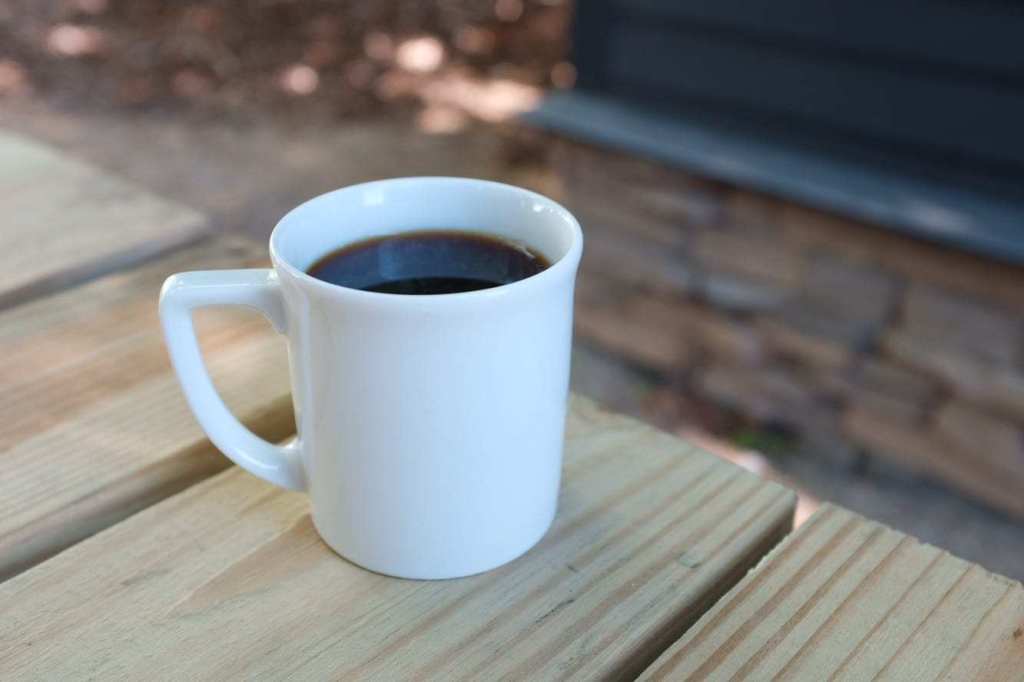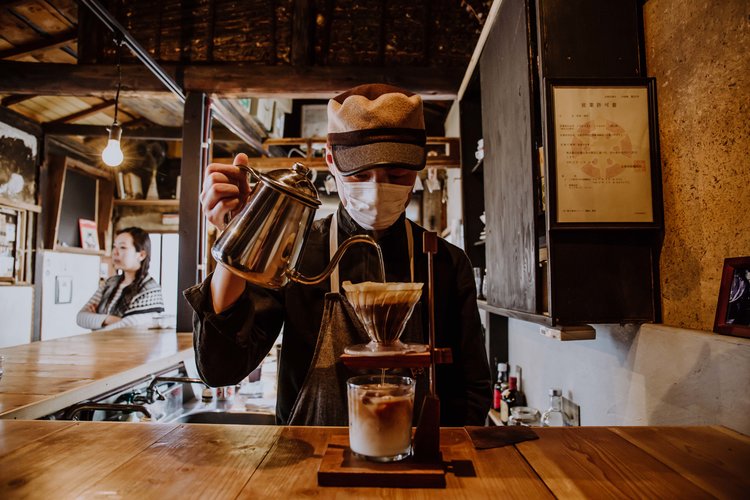Five misunderstandings of decaf. Decaf tastes bad. Baristas don't drink decaf.
Professional coffee knowledge exchange more coffee bean information please follow the coffee workshop (Wechat official account cafe_style)
The demand for decaf coffee has been small, because the audience is very small, people are relatively strange to decaf coffee. After all, most people drink coffee to refresh themselves by consuming caffeine. Even people who drink coffee not for refreshing purposes but for taste will feel incomplete because of the lack of coffee in the coffee, and even less like decaf coffee. Only a few people choose decaf because they are sensitive to caffeine and crave coffee.
Today, the editor is going to tell you about five misunderstandings about decaf.

Decaf coffee tastes bad.
To be fair, most decaf coffees are very... It tastes bad. But this is definitely not a low-caffeine pot, nor is it the fault of decaffeinated coffee beans in the decaffeinated process. But because most decaf coffee chooses cheap, commercial-grade beans in its raw materials. Modern decaffeinated technology is quite complex. In most cases, low-caffeinated beans are just one of the products of decaffeinated coffee companies. The caffeine that has been detached will be another (otherwise, where do you think the caffeine in energy drinks and colas comes from? ). So, when choosing raw materials, you will naturally prefer some coffee beans with high caffeine content (such as Robusta? ). Low-caffeinated coffee beans may already be bad beans before they are decontaminated.
Like other coffee beans sold in coffee shops, low-caffeinated coffee can perform very well even after decaffeination if it is a very high-quality batch from the beginning of raw beans.
Decaffeinated coffee is treated with dangerous chemicals.
As mentioned above, modern decaffeinated technology is quite complex, and indeed, the more traditional decaffeinated treatment on the market-"European treatment" is the use of chemical solvents such as ethyl acetate or dichloromethane. But don't worry, these solvents won't cause any food safety problems. Ethyl acetate is a natural form of ethanol and acetate. It is common in many fruits and wines and is often used in perfumes. Dichloromethane, on the other hand, has a low boiling point and has long evaporated during the roasting of coffee beans.
Still don't believe in decaf? Then you can try the "Swiss water treatment", which does not contain any chemical reagents, but gently extract caffeine using pure water, which is more expensive and less efficient, but can ensure organic production and maintain the best flavor of coffee beans.
Decaf / decaffeinated coffee does not contain caffeine
The decaffeinated process of decaffeinated / decaffeinated coffee can remove most of the caffeine in coffee beans, but it is not possible to remove it completely. As far as the commonly used decaffeination technology on the market is concerned, most of the caffeine can be removed very effectively, so that only 2% of the original caffeine remains in the coffee beans.
If you are really sensitive to caffeine, you may need to rule out all options that contain "coffee ingredients".
Baristas never drink decaf.
This is a fascinating misunderstanding. In regular coffee shops that pay attention to quality, baristas have to taste a lot of coffee (including decaf coffee, of course) at work. Even if they stop tasting and spitting and gargling, they will still absorb a lot of caffeine at the end of the day. So, if sometimes baristas simply want some coffee and don't want to eat too much caffeine, decaf is a good choice.
Deep-roasted coffee beans have less caffeine.
Well, this is not a misunderstanding about decaf. But this misunderstanding is usually believed by many people. Although the baking degree will affect the content of citric acid, malic acid and other organic acids, but the content of caffeine is not affected. Normal coffee roasting does not remove caffeine. On the contrary, if you weigh the beans when you brew coffee, you may accidentally get more caffeine if you weigh more beans than lightly roasted beans.
END
Important Notice :
前街咖啡 FrontStreet Coffee has moved to new addredd:
FrontStreet Coffee Address: 315,Donghua East Road,GuangZhou
Tel:020 38364473
- Prev

What kind of coffee beans are suitable for adding milk? Why do you want milk in your coffee? Can I have milk in my coffee?
Professional coffee knowledge exchange more coffee bean information Please pay attention to the coffee workshop (Wechat official account cafe_style) although black coffee is healthy and easy to taste, but there are still many people like to drink coffee with milk, silky rich milk flavor and coffee flavor multiply each other to add richness to the taste. But there are many kinds of coffee, and the common ones are coffee beans named after the countries or regions in which they are produced.
- Next

Introduction to the grading system standard of coffee beans the grading characteristics and taste of coffee beans
Professional coffee knowledge exchange more coffee bean information please follow the coffee workshop (Wechat official account cafe_style)
Related
- Beginners will see the "Coffee pull flower" guide!
- What is the difference between ice blog purified milk and ordinary milk coffee?
- Why is the Philippines the largest producer of crops in Liberia?
- For coffee extraction, should the fine powder be retained?
- How does extracted espresso fill pressed powder? How much strength does it take to press the powder?
- How to make jasmine cold extract coffee? Is the jasmine + latte good?
- Will this little toy really make the coffee taste better? How does Lily Drip affect coffee extraction?
- Will the action of slapping the filter cup also affect coffee extraction?
- What's the difference between powder-to-water ratio and powder-to-liquid ratio?
- What is the Ethiopian local species? What does it have to do with Heirloom native species?

